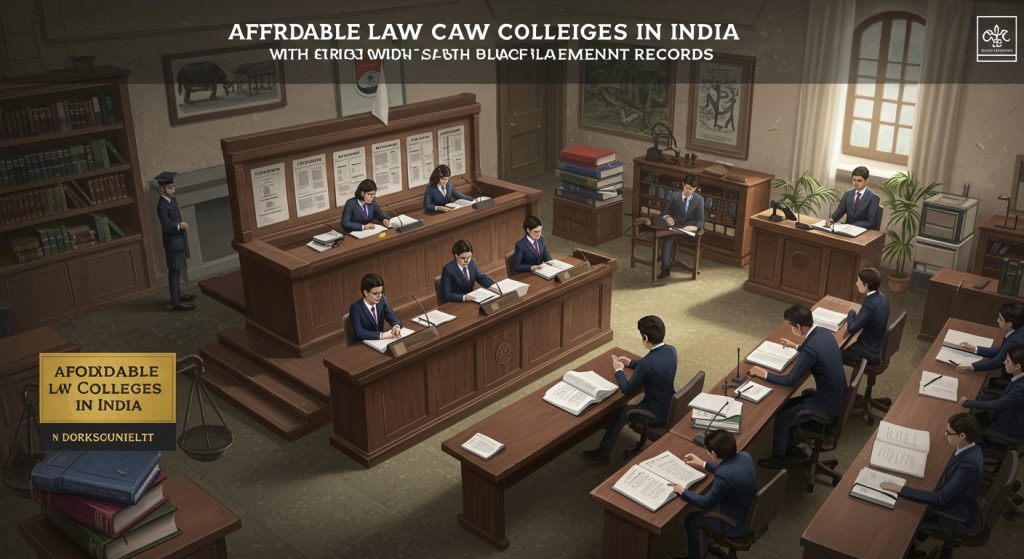Imagine arguing a landmark case, the weight of precedent hanging heavy in the air. But where are you standing? A Toronto courtroom, steeped in the common law tradition, or facing a judge in New York, navigating a system influenced by centuries of American jurisprudence? The nuances matter. Where you train shapes the lawyer you become.
My own “aha” moment came during an international law moot court. I realized how drastically legal education, even on neighboring continents, could differ. Suddenly, choosing between the US and Canada for law school felt less like a geographical preference and more like a fundamental career decision.
This choice isn’t just about rankings; it’s about aligning your ambitions with distinct legal landscapes. Let’s unpack the key differences between top law programs in the USA and Canada, empowering you to make the informed decision that propels you toward your legal aspirations.
Understanding the Lay of the Land: US vs. Canadian Legal Education
Choosing a law school is a monumental decision. The US and Canada offer distinct paths. The legal systems themselves differ significantly, shaping the curriculum, teaching methodologies. Career trajectories. This distinction is crucial when weighing your options.
The US system, largely based on common law with a heavier emphasis on precedent, fosters a more adversarial courtroom environment. Canadian law, while also common law-based, incorporates elements of civil law, particularly in Quebec. This influences the focus of legal education in each country.
Ultimately, understanding these fundamental differences will help you determine which system aligns better with your legal aspirations. Your choice should reflect the kind of law you want to practice and the legal culture you want to be a part of.
Key Criteria and Requirements
Several factors play a vital role when evaluating law programs in the US and Canada. These include LSAT/GRE scores (primarily LSAT in the US, increasingly GRE accepted in both), GPA, letters of recommendation. Personal statements. But, the weight assigned to each criterion can vary.
In the US, the LSAT is king. Top schools often have median LSAT scores in the 170s. Canada also considers the LSAT. Some schools are increasingly accepting the GRE. GPA remains essential in both countries. A strong LSAT/GRE score can sometimes offset a slightly lower GPA.
Beyond academics, demonstrating a commitment to law through extracurricular activities, volunteer work, or relevant work experience is crucial. Strong communication and critical thinking skills, highlighted in your personal statement and letters of recommendation, are essential for both US and Canadian law schools.
Detailed Analysis and Comparison
The structure and content of law programs also differ significantly between the US and Canada. US law schools typically offer a three-year Juris Doctor (JD) program, while Canadian law schools offer a three-year Bachelor of Laws (LLB) or JD program, depending on the province and school.
The curriculum in the US often emphasizes case law analysis and the Socratic method, while Canadian programs may incorporate more theoretical and policy-oriented discussions. Clinical programs and experiential learning opportunities are available in both countries. The specific areas of focus may vary. For example, some Canadian law schools have notable strengths in environmental law, such as the programs listed on Top Law Schools in Canada Offering Specializations in Environmental Law.
Another crucial distinction lies in post-graduate opportunities. In the US, bar exams are administered at the state level, whereas in Canada, licensing is provincial or territorial. Therefore, where you intend to practice law after graduation should significantly influence your choice of law school.
Pros and Cons Evaluation
Choosing between US and Canadian law schools requires weighing the advantages and disadvantages of each system. US law schools generally offer a wider range of specializations and career opportunities, particularly in international law and corporate law. They also tend to have larger alumni networks and more resources.
But, US law school tuition is often significantly higher than in Canada, leading to substantial student debt. Canadian law schools, while potentially offering fewer specialized opportunities, generally provide a more affordable education and a strong foundation in Canadian law.
Job markets also differ. The US legal market is larger and more competitive, while the Canadian market is smaller but potentially less saturated in certain areas. Your career goals and financial situation should guide your decision-making process.
Recommendations and Use Cases
So, when should you consider a US versus a Canadian law school? If you aspire to practice international law or work for a large multinational corporation, a top US law school might be the better choice. The prestige and connections can open doors to global opportunities.
On the other hand, if you’re passionate about Canadian law and policy, or you want to practice in a specific Canadian province, a Canadian law school is the clear winner. The lower tuition and focus on Canadian legal issues make it a more practical and relevant option.
Ultimately, the best choice depends on your individual circumstances and career aspirations. Researching specific programs, talking to current students and alumni. Carefully considering your financial situation are essential steps in making an informed decision.
Application Process and Tips
The application process for law schools in both the US and Canada is rigorous and competitive. Start early, gather all necessary documents. Craft compelling essays that showcase your unique skills and experiences. Pay close attention to deadlines, as they can vary significantly between schools.
For US law schools, focus on achieving a high LSAT score. Prepare thoroughly, take practice tests. Consider enrolling in a prep course. For Canadian law schools, while the LSAT is essential, consider that some may accept the GRE, giving you another testing option. Tailor your personal statement to each school, highlighting why you’re a good fit for their specific program.
Seek feedback on your application materials from professors, mentors. Current law students. Proofread everything carefully. Submit your application well before the deadline to avoid any technical issues. Remember, a well-prepared and thoughtful application can significantly increase your chances of admission.
Career Prospects and Outcomes
The career paths available after law school vary depending on the jurisdiction and your chosen area of specialization. In both the US and Canada, graduates can pursue careers in private practice, government service, public interest law, academia. Business.
In the US, large law firms often recruit heavily from top-tier law schools, offering high salaries but demanding workloads. Canadian law firms also offer competitive salaries. The work-life balance may be slightly better. Government jobs and public interest positions are available in both countries. They often require a strong commitment to public service and may pay less than private sector jobs.
Regardless of your chosen path, networking and building relationships with legal professionals are crucial for career success. Attend law school events, join student organizations. Seek out internships or clerkships to gain practical experience and make valuable connections.
Best Practices and Tips
Navigating the world of law school applications can feel overwhelming. To help you succeed, consider these best practices:
- Research Thoroughly: Dive deep into each school’s curriculum, faculty. Reputation. Explore their websites, attend virtual details sessions. Connect with current students or alumni.
- Tailor Your Application: Don’t submit a generic application. Customize your personal statement to highlight why you’re a good fit for each specific school. Mention specific programs, faculty members, or clinics that align with your interests.
- Network Effectively: Attend law school fairs, connect with legal professionals on LinkedIn. Reach out to alumni for informational interviews. Building a strong network can open doors to internships, job opportunities. Valuable mentorship.
- Prepare for the LSAT/GRE: Invest time and resources into preparing for the LSAT or GRE. Take practice tests, enroll in a prep course, or work with a tutor to improve your score. A higher score can significantly increase your chances of admission.
- Seek Feedback: Ask professors, mentors. Current law students to review your application materials. Fresh eyes can catch errors, suggest improvements. Provide valuable insights.
By following these tips, you can increase your chances of getting accepted into your dream law school.
Conclusion
Having navigated the landscape of top law programs in both the USA and Canada, it’s clear that the ‘best’ choice hinges on individual aspirations. The US system, often lauded for its specialization and prestige, might appeal to those seeking a fast-paced, high-stakes legal career. Canada, with its emphasis on a more generalist approach and a strong focus on social justice, may resonate with individuals seeking a balanced career and a commitment to public service. Ultimately, the success blueprint involves carefully considering your career goals, financial constraints. Personal values. I’ve found that speaking directly with alumni from both US and Canadian programs provides invaluable insights into the day-to-day realities of practicing law in each country. This research will prove vital as you pursue further research. Remember, regardless of your choice, dedication and hard work are the cornerstones of any successful legal career. Embrace the challenges, leverage the resources available. You will be well on your way to achieving your legal aspirations. Your legal journey starts now! Consider exploring Top Law Schools in Canada Offering Specializations in Environmental Law if that resonates with your goal.
FAQs
So, what’s the big difference between law school in the US and Canada? Is it just maple syrup vs. Apple pie?
Ha! It’s a bit more than that. The biggest difference boils down to the legal systems themselves. The US system is a bit more adversarial and focuses heavily on precedent set in individual states, whereas Canada’s leans towards a more unified and, arguably, less litigious approach. That affects how law is taught and practiced.
Okay, makes sense. What about job prospects after graduation? Do you have to stay in the country where you studied?
Not necessarily! But it’s way easier to practice in the country where you got your degree. Passing the bar exam (or equivalent in Canada) is a must. That’s tied to the jurisdiction where you studied. You can often qualify to practice in the other country. It usually involves extra schooling or exams. Think of it as adding another level to the game.
Is one ‘better’ than the other in terms of prestige? Like, are Harvard and Yale automatically ‘better’ than, say, McGill or U of T?
Prestige is definitely a factor. ‘better’ depends on your goals. Harvard and Yale have undeniable global recognition and fantastic resources. McGill and U of T are top-tier schools in Canada with strong international reputations, especially in specific areas like human rights or international law. Think about what you want to do with your law degree. Then look at where the alumni from each school end up.
What about cost? I’ve heard US law school is ridiculously expensive…
You heard right. US law school tuition can be eye-watering. Canadian law schools are generally (but not always!) more affordable, especially for Canadian citizens. Don’t forget to factor in living expenses, though! Toronto and NYC are both going to drain your bank account.
How long are we talking for each program? Is it the same?
Generally, yes. Both US and Canadian law schools are usually three-year programs after you’ve completed your bachelor’s degree. There are some accelerated programs out there. Three years is the standard.
What’s the deal with the LSAT? Is it the same test for both countries?
The LSAT (Law School Admission Test) is used by most law schools in both the US and Canada. So, if you’re planning to apply to schools in both countries, you’ll only need to take it once. But, some Canadian schools might also consider your undergraduate GPA more heavily than US schools. Always check the specific requirements for each school!
Okay, last one! If I’m interested in international law, does it matter where I go to law school?
It can! Both US and Canadian law schools offer excellent programs in international law. The key is to research which schools have faculty specializing in the areas you’re most interested in, strong international law clinics. Exchange programs with universities abroad. Consider which country’s approach to international law resonates more with you.



